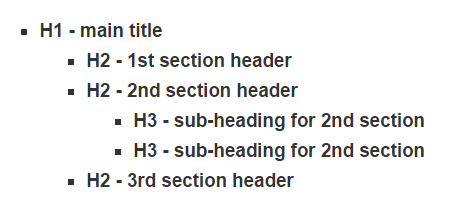5 Vital On-Page SEO Factors You Must Get Right
We are often advocating the importance of great content on a website, and one of the first things we focus on with any new business is their on-page SEO. But, what does this actually mean, and how do we improve your own on-page SEO? Well, without giving too much away, we’ll share five favourite factors, which we consider to be the most important first steps to improving your website.
What Is On-Page SEO?
On-Page SEO is the improvement and optimization of everything that is on a website. It is actually a large part of an SEO campaign and where the most gains can often be made. There are essentially two types of on-page content: that which a person will see, and that which a search engine will analyse. There is a lot of crossover between the two, and getting this balance right is often the key to a well optimised page. Here are our top tips for improving your on-site SEO:
1. Improve Your Content
On a website, content is literally everything. Your content needs to be of the best quality possible. Headlines need to be written in a way that is both engaging and informs; product descriptions need to be unique and useful. Ideally, every sentence on a website should serve the main objective to engage readers and encourage them to make an order! If not, it is a wasted opportunity.
2. Improve Titles
Page meta titles are what is first read by Google, and often what Google displays in the search results. This is important on two levels: Google ranks content based on the words within a title, and a good title will also encourage people to click through to your website.
Getting the right balance between a search engine optimised title and one that encourages readers to click can be challenging. People used to just stuff titles with the most important keywords to get them to rank, but since the infamous Penguin and Panda updates, this tends to have the opposite effect. So take time creating a well-crafted title.
3. Clean URLs
Google, and people, still like a clean URL. URLs should be short and contain keywords – ideally they should closely match your title and brand. Complex URLs do not look pretty in search, and it is still largely believed that keywords within a URL is a ranking factor – it is unlikely to have a large impact, but every little helps!
4. Use Your Headers!
HTML headers are the “tags” that are used to denote headlines on a page. Every well-optimised page should have a single H1 header – this is the main headline in a blog post or product description. Many content management systems, such as WordPress, will now automatically make and blog post title the H1, and also make this the meta title too.
A page should then be structured in a hierarchy of headers, using H2 to subdivide an article into sections. For example, “Use Your Headers!” is an H2. If you need to subdivide a section, you use H3 headers for each new headline, and then use H2 again to start the next section. So a page or post, should look something like:

Using headers in this manner has two benefits: it helps to split up your content into sections that can be quickly scanned by users, making the page easier to read, and it also helps Google to understand the content on a page. Good use of headers is good practice and will help your content rank.
5. Make It Look Appealing
Web pages need to look appealing to attract readers. Good quality images and videos go a long way to making a dull piece of content look exciting and interesting, and it also looks better when shared on social media. In fact, we have recently seen images from product pages appear in the Google search results, so optimising your images so that they look better than the rest may soon have a huge impact on your search click-thru rates.
There are many other factors that you need to take are of too. On-page optimisation also includes the use of mobile-friendly pages, internal and external links (co-citations is another important ranking factor that is often overlooked), Schema mark-up, Open Graph protocol, UGC (e.g. comments, reviews), image alt text, meta descriptions, content length, good navigation and intelligent site architecture, all affect search engine rankings.
If you would like some help in improving your on-page SEO, contact Freelance SEO Essex today.






















